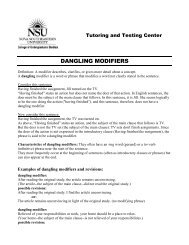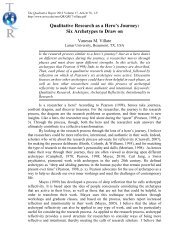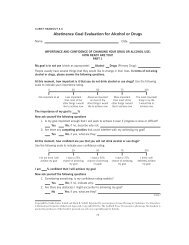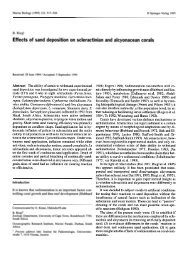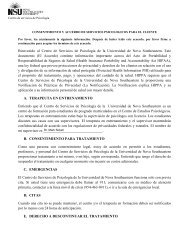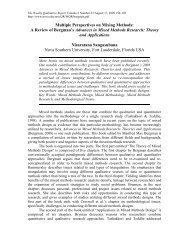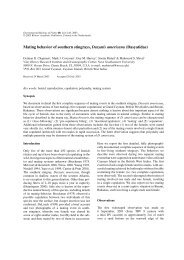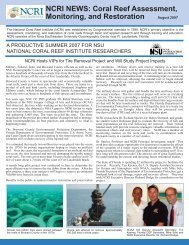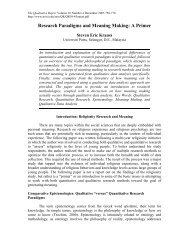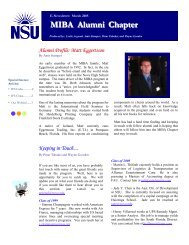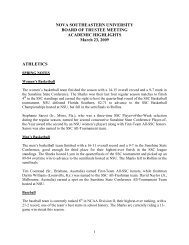Contextualizing Theories and Practices of Bricolage Research
Contextualizing Theories and Practices of Bricolage Research
Contextualizing Theories and Practices of Bricolage Research
You also want an ePaper? Increase the reach of your titles
YUMPU automatically turns print PDFs into web optimized ePapers that Google loves.
Matt Rogers 11<br />
provides an example <strong>of</strong> how McDonald’s has engaged in actions like “the corporate<br />
intrusion in the classroom” (p. 10). He explains that this “educative or ‘cultural<br />
pedagogical’ aspect [<strong>of</strong> McDonald’s] involves its capacity to produce <strong>and</strong> transmit<br />
knowledge, shape values, influence identity, <strong>and</strong> construct consciousness” (p. 9).<br />
Bricoleurs, for Kincheloe, do not embrace symbiotic hermeneutics as a way to<br />
develop certainty about a phenomenon, nor do they do so to create a more accurate<br />
representation. For him (2004a), "there is no final, transhistorical, non-ideological<br />
meaning that bricoleurs strive to achieve" (p. 5). Rather, a representation based on<br />
symbiotic analysis appreciates how a multiplicity <strong>of</strong> complex ontological <strong>and</strong><br />
epistemological factors shape phenomena.<br />
For Kincheloe, the positivist quest for objective certainty is problematic for<br />
another important reason. Specifically, he believes that the trek disregards Foucault’s<br />
arguments about the connection between knowledge <strong>and</strong> power. For Foucault:<br />
Truth is a thing <strong>of</strong> this world . . . And it induces regular effects <strong>of</strong> power.<br />
Each society has its regime <strong>of</strong> truth, its general politics <strong>of</strong> truth: that is, the<br />
types <strong>of</strong> discourses which it accepts <strong>and</strong> makes function as true; the<br />
mechanisms <strong>and</strong> instances which enable one to distinguish true <strong>and</strong> false<br />
statements, the means by which each is sanctioned; the techniques <strong>and</strong><br />
procedures accorded value in the acquisition <strong>of</strong> truth; the status <strong>of</strong> those<br />
who are charged with saying what counts as true. (Foucault & Gordon,<br />
1980, p. 133)<br />
Clearly, Foucault’s perspective differs from positivist traditions. For him, truth does not<br />
exist to be discovered, it is negotiated culturally based on a set <strong>of</strong> epistemological <strong>and</strong><br />
discursive rules. Adopting this position means believing, to a certain extent, the rules that<br />
a society uses for distinguishing true or false statements is arbitrary (i.e., societies can<br />
adopt different truth making practices). Foucault called these foundational sociohistorical<br />
rules the epistemé (i.e., the grammatological foundations <strong>of</strong> truth) <strong>of</strong> a given<br />
society. As Foucault explains, epistemés are negotiated politically; being tied to the<br />
dominant power relationships in an historical epoch. This means, in societies, only<br />
certain groups <strong>and</strong> institutions can gain prominence <strong>and</strong> become sanctioned as the<br />
proprietors <strong>of</strong> knowledge. This is because the rules for knowledge production in a given<br />
epistemé could include: who is sanctioned to be a knowledge producer (e.g., experts,<br />
scientists, the able-bodied, men); what methods must be followed to produce truth (e.g.,<br />
scientific, quantitative or qualitative); or, what institutions are sanctioned as knowledge<br />
producers (e.g., church, governments, schools, business). For Foucault, powerful groups<br />
maintain their knowledge construction legitimacy by continuously undermining<br />
alternative knowledges. In this way, discursive rules lead to the exclusion <strong>of</strong> the<br />
knowledges <strong>of</strong> those who are not in positions <strong>of</strong> power. As such, power shapes <strong>and</strong><br />
constrains knowledge -- limiting what can be said, <strong>and</strong> thought, in a given context.<br />
Kincheloe <strong>and</strong> Berry (2004) trouble the positivist epistemé adopted in<br />
contemporary Western societies. For Berry (2004a), positivist approaches have quietly<br />
fortified oppressive conditions for groups who have little power to produce knowledge.<br />
And, as Kincheloe, McLaren, <strong>and</strong> Steinberg (2011) argue, positivist logocentric<br />
foundations <strong>and</strong> "mainstream research practices are generally, although most <strong>of</strong>ten



